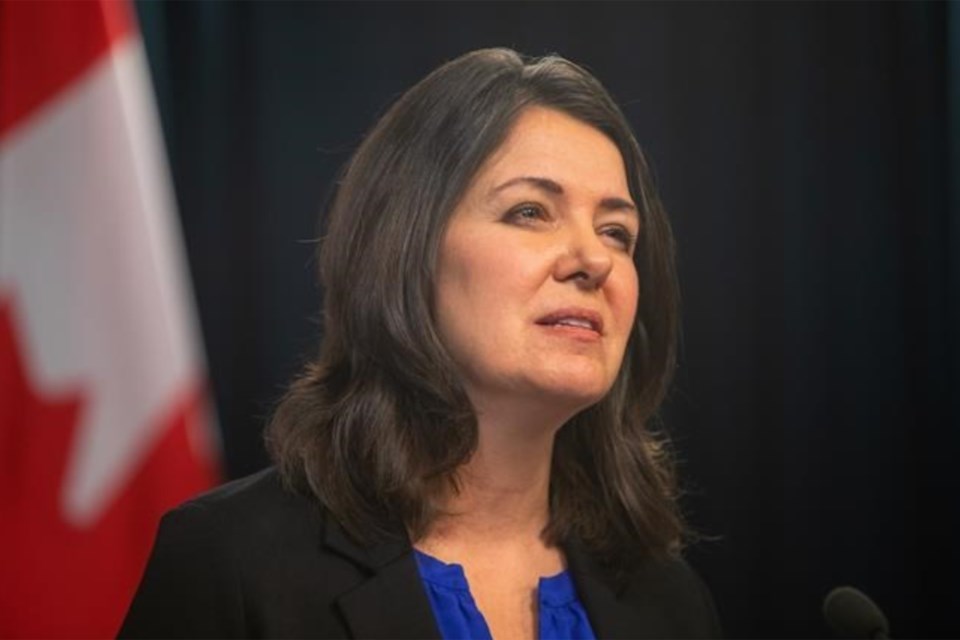Last week Alberta unveiled a swath of new policies which restrict access to gender-affirming care for transgender youth and require parents to be notified if a student chooses to change their preferred name or pronouns in school.
Alberta Premier Danielle Smith announced on Feb. 1 that gender-affirming surgeries for youth 17 and under will be prohibited, and the use of hormone therapy will be restricted to stop children from making "irreversible changes to their body."
The pediatric section of the Alberta Medical Association said in a statement that bottom surgery is already limited to legal adults in Canada, and that hormone therapy is not irreversible.
"Treatment allows the patient time to determine their options without permanent effects," the statement read.
The statement also warns that the health outcomes for transgender youth will be markedly worse if denied appropriate care, and says the policies single out transgender youth and reinforce stigma.
'Fear-based messaging'
"Everyone agrees that we want children to be safe, that we want parents to know what's going on with their children and feel empowered to be part of that education," said Frédérique Chabot, executive director of Action Canada for Sexual Health and Rights.
But because education on subjects like gender diversity and sexuality are not yet universally understood, existing uncertainty has been leveraged as a highly emotional political issue that draws on the desire to keep children safe, Chabot said.
"There's a kind of predatory approach where people create fear and fear-based messaging around (gender and sex education)," she said. "We see the same speaking points coming from the U.S., in states where we're seeing books being banned, where we're seeing sex ed being completely removed from classrooms, where we're seeing gender-affirming care being removed and health care access being completely denied."
Human Rights Campaign has called 2023 "the most damaging and destructive legislative session on record" in the U.S. Last year, 571 anti-equality bills were introduced in state legislatures, half of which target 2SLGBTQI+ youth, according to HRC's annual State Equality Index.
More than double the number of bills restricting 2SLGBTQI+ rights passed in 2023 compared to the previous year, including those restricting health care access for youth and prohibitions on participating in sports or discussing 2SLGBTQI+ people in schools.
Many of the same talking points that have driven this legislation in the U.S. are being used in Canada, often couched as a kind of benevolent approach, Chabot said.
"And it distracts from the fact that, you know, we want our politicians actually to make sure that we can pay rent, that we can buy groceries, can make sure that kids are actually safe, that there are enough teachers, to have classrooms that are not 40 students each, that we want investment in our healthcare systems. And instead, we're busy debating trans rights."
Already a groundwork for it in Canada
The cultural influence of the U.S. may loom large in Canada, but it would be a mistake to overlook the power domestic far-right groups have in the political realm, said Evan Balgord, executive director of the Canadian Anti-Hate Network.
"A lot of what's going on with the pushing of the anti-queer stuff today, specifically, has existed in Canada for a very long time. It's the same groups and people who were trying to fight against same-sex marriage and trying to fight against abortion: Christian nationalists," he said.
"There was already groundwork for it here. The rhetoric around the United States has certainly inflamed that, but there are already groups that had organizations set up and organizing capacity to leverage that new and inflamed rhetoric."
The parental rights dog whistle
Whether in Alberta, Saskatchewan, Montana, or Florida, the idea of "parental rights" has been used to justify legislation related to gender identity. At first blush, the term sounds innocuous, but it has a long, troubling, history that many people aren't familiar with.
"Parental rights is a dog whistle that goes all the way back to trying to keep schools segregated in the United States," Balgord said, and has more recently been used in controversies around 2SLGBTQI+ issues.
In 2017, when legislation was introduced by the NDP government to protect the privacy of students who joined gay-straight alliances, the strongest opposition to the bill came from those insisting it trampled on so-called parental rights.
As with the policy of informing parents that their child had joined a GSA, experts warn new measures put forward by Smith, which require parents be informed if their child changes their preferred name or pronouns, will put children in danger if they don't have a safe, supportive home environment.
"The issue with the parental rights dog whistle is that it is kind of in opposition to children's rights," Balgord said.
The reason school policies about GSAs or gender identity exist is to protect the most vulnerable, he said, for the small number of cases where the parents are abusive.
"If parents have done a good job parenting their kids, they're going to know it's safe to come out to them. And it's a non-issue. But kids who don't feel safe coming out to their parents, now they're going to be made to in Alberta. That's terrifying because those kids who are in potentially abusive situations are at so much more risk if this policy moves forward."




